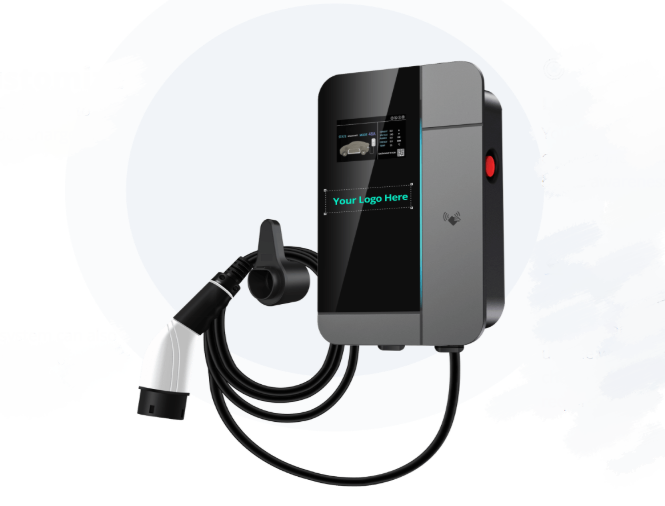The global shift toward electric vehicles (EVs) is accelerating, driven by environmental concerns, government policies, and advancements in technology. As EV adoption grows, the need for reliable and accessible charging infrastructure becomes increasingly critical. However, developing a charging network from the ground up is a complex and resource-intensive endeavor. This is where white-label EV charging comes into play. White-label EV charging allows businesses to leverage existing charging infrastructure and technology, rebranding it as their own to create a seamless, branded experience for customers. This article delves into the concept of white-label EV charging, its benefits, and how it works, offering a comprehensive guide for businesses looking to enter the EV charging market.

White-label EV charging is a business model where companies utilize pre-existing EV charging infrastructure and software provided by a third-party vendor, customizing it with their own branding and identity. Instead of investing in the development, deployment, and management of a charging network from scratch, businesses can adopt a ready-made solution and tailor it to meet their specific needs.
This approach is akin to private-labeling, where a manufacturer produces a product, and a retailer brands it as their own. In the context of EV charging, the third-party provider handles the technical aspects, while the business focuses on branding, marketing, and customer engagement. This model is particularly appealing for companies looking to enter the EV market quickly and cost-effectively.
Developing a proprietary EV charging network can take years, involving extensive research, development, and testing. With white-label solutions, businesses can significantly reduce this timeline. The pre-built infrastructure and software allow companies to launch their branded charging networks in a matter of months, enabling them to capitalize on the growing demand for EV charging services.
Building and managing an EV charging network requires a team of skilled professionals, including engineers, software developers, and maintenance personnel. By opting for white-label solutions, businesses can eliminate the need for such a large workforce. The third-party provider takes care of the technical aspects, allowing companies to focus on their core operations and reduce personnel costs.
A white-label EV charging network offers businesses the opportunity to create a fully branded experience for their customers. From the design of the charging stations to the user interface of the accompanying app, every element can be customized to reflect the company’s brand identity. This not only enhances brand visibility but also builds trust and loyalty among customers.
By offering EV charging services under their own brand, businesses can position themselves as leaders in sustainability and innovation. This can help attract environmentally conscious customers and foster long-term loyalty. Additionally, a branded charging network serves as a powerful marketing tool, reinforcing the company’s commitment to a greener future.

The first step in creating a white-label EV charging network is branding and customization. Businesses work with the third-party provider to tailor the charging stations and software to align with their brand identity. This includes adding logos, choosing color schemes, and customizing messaging. The goal is to create a seamless brand experience that resonates with customers.
White-label providers offer state-of-the-art charging hardware that is both reliable and scalable. These charging stations are designed to accommodate various types of EVs and charging speeds, from Level 2 chargers to fast chargers and ultra-fast chargers. The hardware is also equipped with advanced features such as RFID authentication, payment processing, and real-time monitoring.
The software component of white-label EV charging is just as important as the hardware. Providers offer customizable software platforms that include mobile apps, web portals, and backend management systems. These platforms enable users to locate charging stations, check availability, initiate charging sessions, and make payments. For businesses, the software provides valuable insights into usage patterns, revenue generation, and maintenance needs.
Once the branding and customization are complete, the next step is deployment and installation. White-label providers typically handle the entire installation process, from site assessment and permitting to equipment setup and testing. This ensures that the charging network is up and running smoothly and efficiently.
Maintaining an EV charging network requires regular updates, troubleshooting, and repairs. White-label providers offer ongoing maintenance and support services to ensure that the network operates at peak performance. This includes remote monitoring, software updates, and 24/7 customer support. By outsourcing these tasks, businesses can focus on growing their brand and serving their customers.
The rise of white-label EV charging is driven by several factors, including the rapid growth of the EV market, the need for scalable solutions, and the desire for cost-effective infrastructure. Businesses across various industries are recognizing the potential of white-label solutions to meet the increasing demand for EV charging while enhancing their brand presence.
For retailers, white-label EV charging offers an opportunity to attract eco-conscious customers and increase foot traffic. For property developers, it adds value to residential and commercial properties by providing a much-needed amenity. Even energy companies are leveraging white-label solutions to diversify their offerings and stay competitive in a rapidly changing market.
Moreover, government incentives and grants are available in many regions to support the deployment of EV charging infrastructure. These incentives, combined with the cost savings and scalability of white-label solutions, make it an attractive option for businesses looking to invest in the future of transportation.
Several retail chains have successfully implemented white-label EV charging networks. By offering charging services in their parking lots, these retailers have not only enhanced the customer experience but also increased dwell time and sales. For example, a major supermarket chain partnered with a white-label provider to install charging stations at over 100 locations, resulting in a significant boost in customer satisfaction and loyalty.
Hotels and resorts are also embracing white-label EV charging as a way to attract eco-conscious travelers. By providing branded charging stations, these establishments can differentiate themselves from competitors and appeal to a growing segment of the market. One luxury hotel chain reported a 20% increase in bookings after launching its white-label EV charging network.
Fleet operators are another group benefiting from white-label EV charging. By integrating charging solutions into their operations, these companies can reduce fuel costs, lower emissions, and improve efficiency. A leading logistics company partnered with a white-label provider to deploy charging stations at its depots, resulting in significant cost savings and a smaller carbon footprint.
As the EV market continues to grow, the demand for white-label charging solutions is expected to rise. Advances in technology, such as faster charging speeds and smarter software, will further enhance the appeal of white-label networks. Additionally, the integration of renewable energy sources, such as solar panels, will make these networks even more sustainable.
In regions like the UK, where the government has set ambitious targets to phase out petrol and diesel vehicles, white-label EV charging will play a crucial role in building the infrastructure needed to support the widespread adoption of electric vehicles. Businesses that adopt white-label solutions now will be well-positioned to capitalize on this trend and play a key role in shaping the future of transportation.
White-label EV charging is revolutionizing the way businesses approach the EV market. By offering a fast, cost-effective, and customizable solution, it enables companies to launch their own branded charging networks without the need for extensive technical expertise. With benefits such as faster deployment, reduced costs, and enhanced brand equity, white-label EV charging is an attractive option for businesses looking to stay ahead in the rapidly evolving world of electric vehicles.
As the global transition to electric mobility gains momentum, white-label EV charging will undoubtedly play a pivotal role in building the infrastructure needed to support this shift. For businesses, the message is clear: the time to invest in white-label EV charging is now. By embracing this innovative model, companies can not only contribute to a sustainable future but also strengthen their brand and drive customer loyalty.